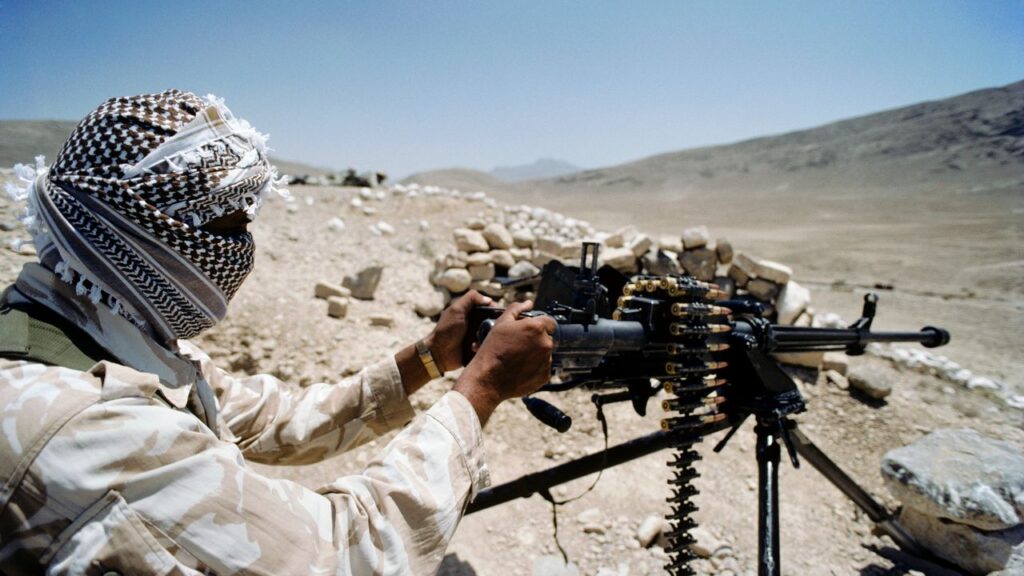
Every year 27th March is observed as a ‘Black Day’ in Balochistan. All the shops remain closed and not even a single car is seen on the roads. The Baloch people talk about Pakistan’s betrayal. Here’s why?
Balochistan today, is a virtual time bomb waiting to explode any moment. It has a history of endless brutalities, massacres, and bloodshed.
One of the most ignored, neglected, and exploited places in the world; Balochistan has never seen any peace or development.
The reason is fairly obvious as it is not at all unusual for political activists, students, journalists, human rights defenders and Shi’a Muslims to suddenly disappear from their homes anytime in the day or night.
According to the Human Rights Council of Balochistan (HRCB) and Baloch Human Rights Organization (BHRO) – even women are not spared. In most cases women are picked up from their homes to mount pressure and get their male family members and relatives to surrender.
The Human Rights Commission of Pakistan estimates that some 47,000 Baloch and 35,000 Pashtuns are ‘missing’ but nobody knows the exact count of people who have been killed.
● Sajid Hussain the Chief Editor of Balochistan Times has been ‘missing’ since the past many years. He is suspected to have been abducted by the ISI in Sweden.
● Gammar Khan, a resident of Tootak village, of Khuzdar district in Balochistan died miserably after losing all hope of meeting his ‘missing’ son Imran Baloch who was abducted by Pakistani security forces.
● Pakistani forces killed Nawab Akbar Bugti the chief of Bugti tribe in Balochistan on 26 August 2006.
Crackdowns, raids, and abduction are a routine exercise for the Pakistan Army, Inter-Services Intelligence (ISI), Frontier Corps, and Military Intelligence. Quite often these raids are carried out to harass and take out frustration against the women when the men are not around. In a number of such cases the Pakistani security force and ISI have abducted and tortured men and women and burnt their homes. To escape such mindless raids by ISI and the security forces many families have left their native villages.
Over the past two decades mass graves containing 10 to 150 bodies have been found each in different parts of Balochistan. The Pakistani Army not only occupied Balochistan but killed millions of Baloch civilians including women, children and aged. Many Baloch houses and villages have been burnt.
Balochistan did not wish to be a part of Pakistan in 1947. The Khan of Kallat Mir Ahmad Yar Khan Baloch wanted “complete Independence” and declared Balochistan as an independent country – separate from both India and Pakistan on August 11, 1947 — with the same territorial and administrative freedom that it enjoyed in 1838.
Accordingly, Balochistan was officially allowed to post an ambassador in Karachi (the first capital of Pakistan) and hoist the Baloch flag, just like most countries do. Accordingly, the first-ever general elections in Balochistan’s history were held in 1947. The Kallat parliament and ruler started functioning independently and laws were being drafted. Balochi was recognized as the “official and national language”.
In October 1947 when the Khan of Kallat visited Pakistan, he was given due recognition as head of a sovereign state and was called the King of Balochistan in Karachi.
In a way one could say that part of the mess in which Balochistan is today has been created by the political leaders in both India and Pakistan. Here’s how:
Initially Mohammand Ali Jinnah who fought and won a legal case on behalf of the Khan of Kallat as ruler of Balochistan agreed to accept Balochistanas a sovereign nation but later went back on his words.
27 March 1948 All India Radio quoted VP Menon, Sardar Patel’s right-hand man dealing with the merger of the 565 princely states with the Union of India, as saying that the Khan had sent an ambassador to merge Kallat with India. Jinnah, who happened to be tuned-in, heard the broadcast and took immediate action to ensure that the mistakes committed in Kashmir were not repeated. Intriguingly the Indian Prime Minister Nehru denied the news, while the Pakistan Army moved into Pasni, Jiwani and Turbat in coastal Balochistan and Kalat on April 1, 1948.
By then, the damage had already been done. Balochistan was captured at gunpoint. On March 28, 1948, Balochistan’s independence came to an end and Mir Ahmad Yar Khan signed the document of accession to Pakistan almost under duress. The legal position of the Khan was abolished — Balochistan became a part of Pakistan and all members of the Baloch Constituent assembly were arrested.
Pertinently both houses of the Baloch parliament had rejected Jinnah’s proposal to merge Balochistan with Pakistan by a majority vote and had forbidden the Khan of Kalat from signing any document changing its independent status. But who cares for legalities when Pakistan held Balochistan’s neck in its hands?
The flag of the sovereign state of Balochistan atop its embassy in Karachi flew for only 227 days.
The Baloch people don’t accept their slavery and just want their country back.






Add comment